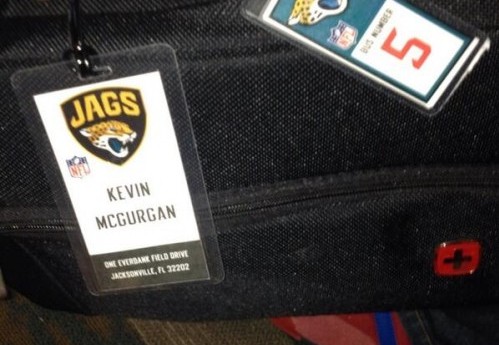22nd October 2013 USA
American Football goes East, Football goes West

In the 1980’s, Channel 4 brought American football into teenage British living rooms. Mike Ditka, John Elway and William “The Refrigerator” Perry became household names as schoolkids started to “Go Long”, call “Set, Hut!” and grapple with the new language of football. Many were convinced that the novelty wouldn’t last.
Fast forward 25 years and American football in the UK has surpassed expectations. No longer solely watched by expat Americans and caffeine-infused midnight British sports junkies, the game has become popular – earlier this month a sold-out crowd of 86000 fans watched the Steelers take on the Vikings at Wembley stadium.
Another 80000 will watch the 49ers take on the Jaguars this coming weekend.
All this makes good transatlantic business sense. For the NFL, the UK and Europe represent a new market to grow the game beyond the US as well as, who knows, perhaps a professional sporting franchise based in London one day.
For the UK, and London in particular, the NFL games continue to showcase us as the capital of the sporting world post-London 2012 Olympics. This is great news for everyone involved in the game, from Wembley stadium staff and food vendors, to major international air carriers.

And that’s why I am here. I’ve just landed in London on the Jaguars team plane chartered from Virgin Atlantic. I’m accompanying the Jaguar’s senior leadership and the Mayor of Jacksonville to promote trade and investment between London and Jacksonville.
Over the next four seasons, the Jaguars will become London’s “home” NFL team. So far, 17,000 people have joined the Jaguars Union Jax British fan club. They’ve already made a big impact, from shooting their cheerleader calendar in London, to partnering with Walking With the Wounded – the veterans charity for whom HRH Prince Harry will walk to the South Pole later this year.
But as the title of this blog alludes, it’s not all one way traffic. If England is the national home of football (soccer) and Brazil its spiritual home, then the USA is its future. In the excellent book “Soccernomics”, the authors Simon Kuper and Stefan Szymanski predict that the US (alongside Turkey and Japan) is destined to become king of the world’s most popular sport.
Soccer is growing constantly here thank to genuine high profile stars and leaders such as Landon Donovan and Robbie Rogers, who came out as gay in February 2013. NBC’s weekend coverage of the English Premier League (EPL) is also drawing in good ratings across the US as are the Spanish language stations covering Spanish, Mexican and South American leagues.
Florida is very much at the centre of both sports. It’s the second largest media market for soccer in the US (especially Miami) and it’s also home to three professional NFL teams. Two of those teams’ owners also run EPL clubs (the Glazers – Tampa Bay Buccaneers and Manchester United; Shahid Khan – Jacksonville Jaguars and Fulham FC). Even LeBron James has a stake: he’s a part owner of my favourite team, Liverpool FC.
Meanwhile, Miami and Orlando are on the hunt for the next MLS franchise. While David Beckham is said to be in the process of attempting to bring an MLS team to Miami, Brit Phil Rawlins, owner of Orlando City Soccer Club, retains his ties with the UK as a Director of Stoke City. Notably, Scotland played the USA in Jacksonville in 2012, drawing the highest ever crowd for a domestic soccer match, proving that soccer has a strong audience in Florida.
And It will get even bigger in 2014. If the press reports are true, Miami will host England for an 8-day training camp as well as an England v USA friendly match before both teams fly to Brazil for the World Cup.
This is a fantastic opportunity for the next generation of Americans to learn about the home of soccer. It seems a long way from when George Best and Rodney Marsh played for the Ft. Lauderdale Strikers and Tampa Bay Rowdies respectively. However, I bet many saw that as a novelty then, just like the NFL in ’80’s UK. Sometimes the best things just take a little more time.
I find it astonishing that Miami still does not have an MLS franchise given the popularity of the game here. I really hope the Beckham-Claure partnership works out, preferably without Stephen Ross trying to muscle in on the action. We’ve had some fantastic “soccer” to watch in recent years with various top-club exhibition tournaments and internationals, and Miami deserves a decent MLS side that’s a big step up from the currently anaemic Fort Lauderdale Strikers.